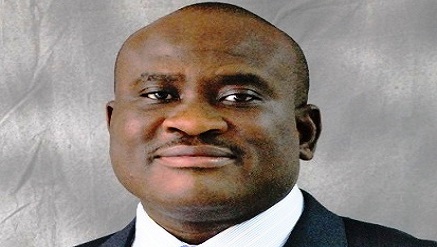Telecom
MTN to Sell 9,183 BTS/Towers in Nigeria

MTN, Africa’s largest wireless operator, has disclosed it is in talks to sell its Base Station Transceiver Stations (BTS/Towers) businesses in Nigeria.
In a statement, at the week, the company revealed about advancement in negotiations to sell its tower business in its operation in Nigeria, that includes 8 640 existing and 543 towers under development, to an entity that will be managed by a large mobile telecommunications infrastructure provider.
However, the Group intends to retain a non-controlling interest of 51% with protective rights in the new entity and will enter into a lease agreement for the use of the tower infrastructure.
The contractual agreements are expected to be finalised in due course and the transaction is expected to close in various tranches under customary closing conditions.
Meanwhile, the statement further showed that the Group witnessed rising profits for the first half of the year and soaring data revenue.
Result of the company’s account showed headline earnings per share, which exclude one-time items, rose 9 percent to 7.29 rand in the six-months through June. Sales grew 11 percent to 72.8 billion rand ($6.8 billion), with data revenue up 39 percent.
An expanded third-generation network and an increase in smartphone use boosted data sales across the 22 countries in which it operates, Sifiso Dabengwa, chief executive officer noted.
Subscribers to MTN Mobile Money, used for payment in areas where banks are limited, grew by 24 percent to 18.4 million people. The shares gained 3.2 percent to 224.50 rand as of 9:44 am in Johannesburg, the biggest intraday rise since Feburary 6.
“Voice revenue continued to be impacted by aggressive competition, regulatory pressures and a weakening economic environment in key markets,” Dabengwa said.
MTN plans to sell 8,640 existing Nigeria towers and 543 under development to an entity that will be managed by a large mobile telecommunications infrastructure provider, the company said. MTN intends to keep a non-controlling interest of 51 percent in the new entity and will enter into a lease agreement for the use of the tower infrastructure.
The Johannesburg based company is seeking transformational deals and has overhauled senior management in its fastest growing markets as it seeks to increase smartphone penetration and boost data revenue outside South Africa, where sales are under pressure from competitors cutting prices and regulators.
Total subscribers increased 3.5 percent to 215 million with 1.7 million net additions in Nigeria, its biggest market with 58.4 million customers. In South Africa, sales declined 7 percent to 19.2 billion rand. An interim dividend of 4.45 rand was declared, up 20 percent.
The company is working closely with relevant authorities in managing U.S. and EU sanctions against Iran, Syria and Sudan it said.
Telecom
MTN @ Swish Fusion Summit, Showcases 5G Rollout Strategy

MTN Nigeria Communications Plc has joined other professionals across media, technology, and business gathered in Lagos for the Swish Fusion Tech and Media Summit.

Themed ‘Africa: Big Wins & New Breaks’, the summit drew thousands of attendees and featured more than 40 speakers exploring the intersection of innovation, regulation, and economic growth across the continent.
Among the sessions, MTN Nigeria presented a detailed look at the company’s ongoing 5G deployment efforts and its role in shaping enterprise infrastructure.
Njideka Jack, senior manager for Partnerships in MTN’s Enterprise Business Division, shared details of the investments, reiterating the company’s commitment to delivering high-quality 5G-powered services.
The company’s 5G rollout timeline began in 2022 with license acquisition from the Nigerian Communications Commission. In 2023, MTN moved into pilot testing and infrastructure investment.
By 2024, coverage had expanded to key cities and business hubs.
The company now plans to extend access to more underserved areas throughout 2025 while deepening collaboration with OEMs and regulators.
Beyond the rollout itself, Jack also spoke on the potential of private 5G networks for Nigerian enterprises.
With the ability to offer secure, high-speed, low-latency connectivity, these networks are increasingly being adopted in manufacturing, healthcare, education, and logistics sectors.
The summit’s broader agenda reflected a similar sense of urgency around Africa’s digital future.
Panels and breakout sessions tackled topics ranging from mobile-first product design and regulatory frameworks to the rise of AI in content creation and the realities of funding early-stage tech ventures on the continent.
Speakers from companies like Jumia, Stears and local startups provided perspectives on both the barriers and breakthroughs in building scalable African solutions.
The sessions also sparked conversations about how African businesses are adapting to consumer behaviour shifts and infrastructure limitations.
Telecom
PAT Taps Osi as CEO

Pan African Towers (PAT), a Nigerian infrastructure provider serving 9mobile and Spectranet, has appointed Echezona Osi as chief executive officer.

Echezona Osi
Adefolarin Ogunsanya, company’s, board chairman, explained in a statement that Osi would succeed Oladipo Badru, whose tenure lasted nine months in acting CEO position. Osi has more than 28 years of experience in the telecommunications sector across various regions of Africa.
Prior to his appointment as CEO, he had served as the head of network deployment at Airtel Nigeria, operations director and chief technical information officer at MIC Tanzania, chief technology officer roles at IPT PowerTech Nigeria, Rhino Niger Networks and Biswal Nigeria.
He obtained a degree in electrical/ electronic engineering from the University of Benin and a postgraduate diploma in data science and business analytics from the University of Texas.
Telecom
NCC Introduces N10m Licence Fee for Bulk SMS Service

Companies sending bulk international text messages, also known as Application-to-Person (A2P) messages, will now have apply for a licence that costs N10 million.

This is part of new rules introduced by the Nigerian Communications Commission (NCC) aimed at cleaning up the system, fighting fraud, blocking spam messages and stopping money from leaving the country unchecked.
These A2P messages are the kind customers get from banks, online stores, hospitals and political campaigns, automated texts sent from apps to their phones.
According to the commission, the bulk international text message system has been poorly regulated, allowing misuse and invasion of privacy.
“The International SMS Service Ecosystem in Nigeria has not been fully brought under regulatory control. It has been observed that the excessive use of the Short Message Service has led to fraud, spam and illegal activities,” the NCC said.
The regulator warned that without action, the problem would worsen as more people use mobile phones and digital services.
To solve this, the NCC is creating a central platform, or gateway, through which all international bulk text messages must pass through.
The agency said this would help to monitor messages in real time, ensure proper fees are paid, and make sure the money stays in Nigeria where it can contribute to the economy.
As part of the incoming change, service providers must follow strict rules, including strong data protection, spam filters, and message encryption.
Also, they must also work with local mobile networks and make sure all messages come from a verified sender
The NCC warned that any message without a proper sender ID will be blocked and not delivered to users.
To protect users from unwanted texts, the new rules say companies must get clear permission before sending any promotional content.
The rule also says people must also be able to choose whether they want to receive such messages or not.
Companies are now required to keep records of all messages for at least six months and must clearly state all charges involved.
The NCC said fees for help requests, cancellations, or service info must be transparent and not include hidden charges.
The commission will issue licences to several providers to encourage healthy competition but may limit new licences if needed.
Only companies that show they can stop fraud and safely deliver messages will be allowed to operate. They must also regularly report their message traffic and finances to the NCC.
It warned that any company that breaks the rules risks getting fined, suspended, or having its licence revoked.
Offences like charging illegal tariffs, ignoring security rules, or avoiding taxes will be punished, the NCC said.
The commission added that the new rules follow the Nigerian Data Protection Act 2023 and support the federal government’s goal of strengthening cybersecurity and controlling Nigeria’s digital space.
The framework will also be reviewed from time to time to keep up with new technology and market trends.

 Broadcasting3 days ago
Broadcasting3 days agoNigeria Week Ahead: Inflation, Oil and Naira in focus

 News3 days ago
News3 days agoEFCC: Accusations Against Our Chairman Are Baseless and Misleading

 Telecom2 days ago
Telecom2 days agoMTN Nigeria Targets $1Bn Cloud Market with Largest Modular Data Centre

 Telecom2 days ago
Telecom2 days agoNCC Introduces N10m Licence Fee for Bulk SMS Service

 General News2 days ago
General News2 days agoWoodhall Capital and Partners Launch ₦1.5Bn Fund

 E-Business2 days ago
E-Business2 days agoFirm Highlights Top Risks of Quantum Computing

 General News2 days ago
General News2 days agoBurna Boy Distances Himself from Meme Coin, Labels Crypto as Fraud

 Telecom2 days ago
Telecom2 days agoPAT Taps Osi as CEO


























